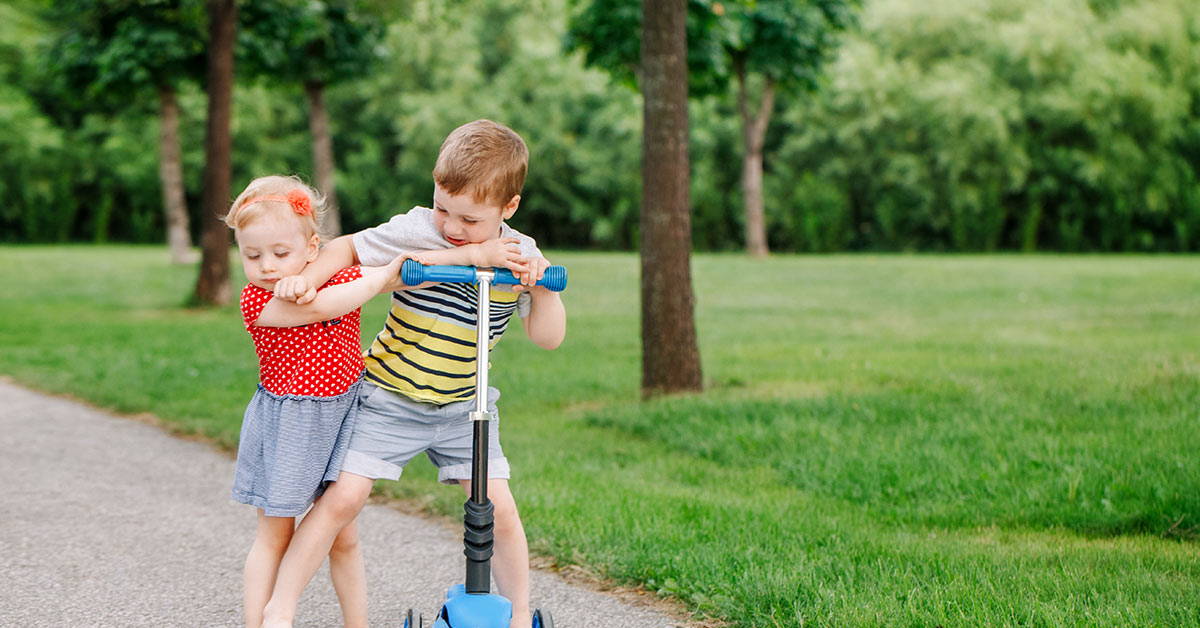How should a child respond to a bully? While most people agree they should stand up for themselves, there are varying opinions on what that entails. Melissa Wilson, one of the hosts of The Juggling Act podcast, brings up three approaches. First, comes her kid’s school policy of “no, go, tell”. The children are encouraged to say no, leave the situation, and tell an adult. But when a boy was physically violent to her daughter on the playground, the girl’s father and Mel’s ex-husband, told her to hit back.
“In one way I kind of get it, if a boy has kicked you in the privates, maybe she should be kicking back to try to get him to back down,” Mel said, “but that goes against everything that I think you should be doing.“
Instead, Mel explained that she’s of the third and “peaceful approach”. “I’m constantly saying to my kids that if someone is saying mean things to you or they’re trying to hurt you, then it’s like tennis. If you don’t hit the ball back, the game is over. So you just don’t do anything, you just walk away.” [1]
“Don’t Start the Fight But You Could Finish It”
While there are times that self-defense is needed, teaching all victims of bullying to hit back isn’t a good solution. For one thing, it could easily lead to an escalation of violence and serious injuries. Since schools are required to keep all of their students safe, they can’t condone hitting back because of this risk. But what should victims do when the bullying continues?
Of course, most people agree that children shouldn’t start the violence. However, many suggest the strategy to hit back to stop further bullying. Even teachers who can’t recommend this to their students would recommend it to their own children. However, proving the attack was in self-defense could be difficult. And school policies often don’t distinguish between who gave the first hit and who hit back. Meaning, the victim could end up receiving consequences alongside their bully.
To Hit Back or Not to Hit Back?
Does fighting back really stop future bullying? After all, some studies following pre-school and elementary-school children discovered that acting submissive and not defending themselves increases the chances of continued bullying. However, the answer isn’t that simple. The studies also found that children who hit back are more likely to be bullied than children who don’t. [2]
For clarity, let’s distinguish two types of children who experience continued bullying.
- Passive victims, who are anxious, timid, submissive and don’t fight back.
- Provocative victims, who respond with anger and uncontained emotion.
Provocative victims are at a higher risk of continued bullying than passive victims. This is because their angered acts prolong the conflict. Their lack of controlling their strong emotions keeps them in a cycle of being the victim. When it comes to hitting back, how is vital. If a child fights back confidently and competently, it could stop further bullying. However, if a child fights ineffectively out of emotional distress, they tend to lose fights, and remain a target for further bullying and provocation.
Therefore, if a child hits back while remaining calm and collected, it may be a good strategy. But if a child is unskilled at fighting and highly emotional, it could make their situation so much worse. [3]
Read: Dad slammed as punishment for ‘distraught’ nine-year-old son divides parents
How Should a Child Respond to Bullying?
Since the “hit back” strategy could be so volatile, here are some low-risk strategies for children to handle verbal bullying or minor physical bullying:
- Stay calm
- Defend yourself with words
- Sort out any conflict
- Get help from a friend
Fortunately, research has found other factors that help prevent bullying, including:
- Warm, supportive parents [3]
- Having good friends, especially those who could accompany the victim to areas where the bully may be waiting
- Parents who support their children’s healthy friendships
- Parents who teach their children how to react calmly and assertively to provocation and minor physical aggression from others. (For example, how to block a pinch while firmly telling the bully to stop.)
- Notify the school about the issue
- Learn how to recognize and avoid potentially dangerous situations
- Learn the difference between physical play and physical aggression
- Building confidence, and portray it by talking in a calm voice, walking with purpose, and making eye contact
- Attract attention when cornered by the bully by yelling or screaming
- Learning self-defense, not necessarily to fight back, but to learn how to block a punch, break free from a restraint, etc. These classes could also help boost confidence. [5]
Keep Reading: Should Schools Fine the Parent of a Bully?
Sources
- “Is it ever OK to teach your kids to hit back when it comes to bullying?” KidSpot. Claire Haiek. August 18, 2021
- “Victimized children’s responses to peers’ aggression: behaviors associated with reduced versus continued victimization.” Dev Psychopathol. BJ Kochenderfer, GW Ladd.
- “Fighting back may stop some children from being bullied.” The Conversation. Karyn Healy. November 16, 2015
- “Parenting behavior and the risk of becoming a victim and a bully/victim: A meta-analysis study.” Child Abuse & Neglect. Suzet Tanya Lereya, Muthanna Samara, Dieter Wolke. December 2013.
- “8 Self-Defense Strategies to Ward Off Bullying.” Very Well Family. Sherri Gordon. June 22, 2021

